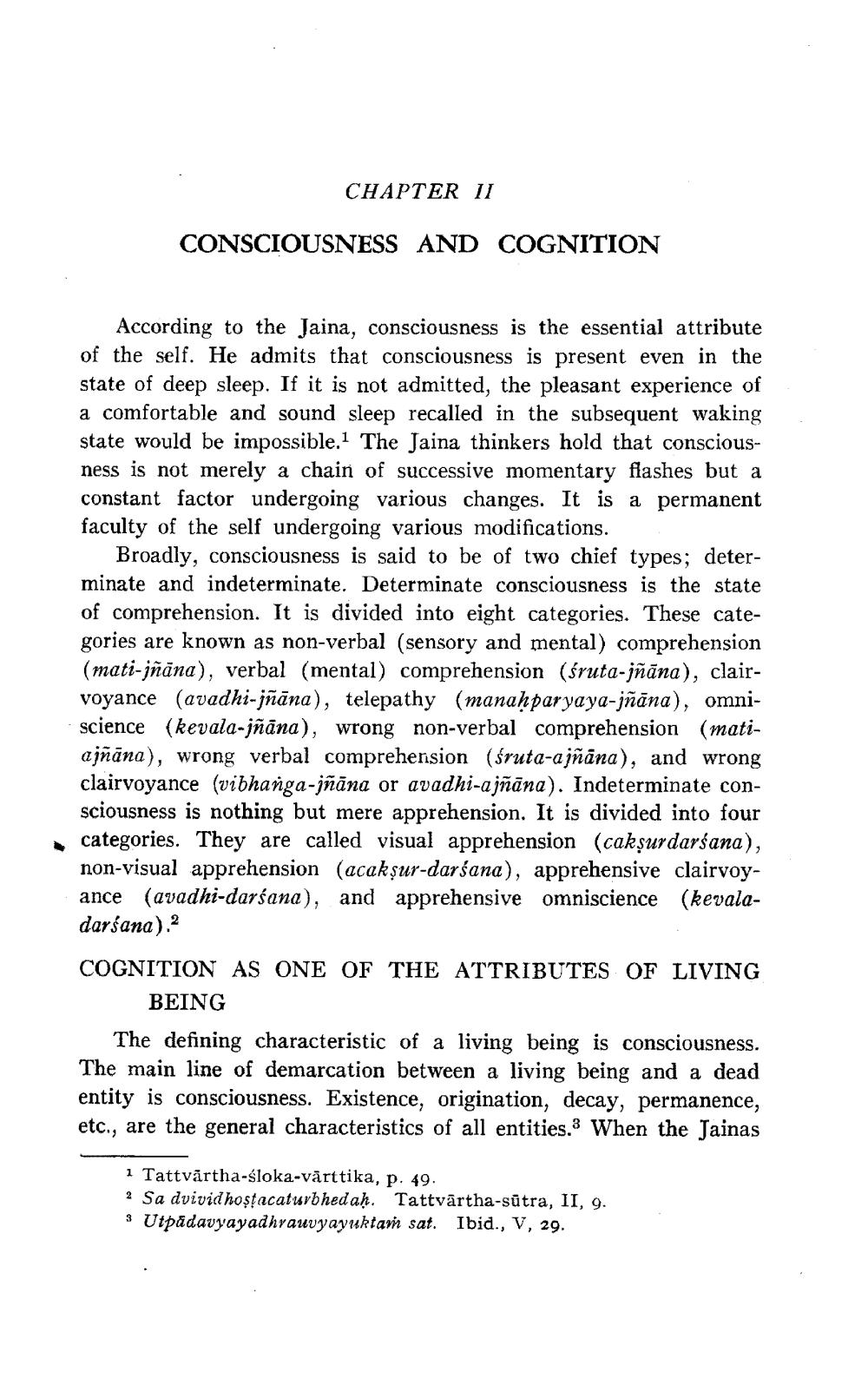________________
CHAPTER II
CONSCIOUSNESS AND COGNITION
According to the Jaina, consciousness is the essential attribute of the self. He admits that consciousness is present even in the state of deep sleep. If it is not admitted, the pleasant experience of a comfortable and sound sleep recalled in the subsequent waking state would be impossible.1 The Jaina thinkers hold that consciousness is not merely a chain of successive momentary flashes but a constant factor undergoing various changes. It is a permanent faculty of the self undergoing various modifications.
Broadly, consciousness is said to be of two chief types; determinate and indeterminate. Determinate consciousness is the state of comprehension. It is divided into eight categories. These categories are known as non-verbal (sensory and mental) comprehension (mati-jñāna), verbal (mental) comprehension (śruta-jñāna), clairvoyance (avadhi-jñāna), telepathy (manaḥparyaya-jñāna), omniscience (kevala-jñāna), wrong non-verbal comprehension (matiajñāna), wrong verbal comprehension (śruta-ajñāna), and wrong clairvoyance (vibhanga-jñāna or avadhi-ajñāna). Indeterminate consciousness is nothing but mere apprehension. It is divided into four categories. They are called visual apprehension (cakṣurdarśana), non-visual apprehension (acak şur-darśana), apprehensive clairvoyance (avadhi-darśana), and apprehensive omniscience (kevaladarśana),2
COGNITION AS ONE OF THE ATTRIBUTES OF LIVING BEING
The defining characteristic of a living being is consciousness. The main line of demarcation between a living being and a dead entity is consciousness. Existence, origination, decay, permanence, etc., are the general characteristics of all entities. When the Jainas
1 Tattvartha-śloka-värttika, p. 49.
2 Sa dvividhoṣṭacaturbhedah. Tattvärtha-sutra, II, 9.
3 Utpadavyayadhrauvyayuktam sat. Ibid., V, 29.




